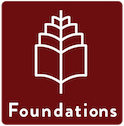Blog
RESPs: An Overlooked Tool for Poverty Reduction
0 CommentHave you ever felt intimidated trying to access financial information or support? If so, you are not alone. At READ Saskatoon, we often hear about the challenges people face trying to make the best financial decisions for themselves and their families. To exacerbate existing challenges, COVID-19 has drastically altered the services many financial institutions provide. These changes mean that many people have yet another hurdle to get the financial products and services needed to ensure financial security for themselves and their families.

READ Saskatoon provides free financial literacy information with a focus on supporting vulnerable individuals and families. Our RESP workshop and Matched Savings program are especially relevant to families who may not know about Registered Education Savings Plans or the resources available to save for their children’s post-secondary education, such as the Canada Learning Bond and the Canada Education Savings Grant. Our Matched Savings program also helps parents save money by matching their RESP contributions three to one. For families struggling to make ends meet, these grants and our programming change the conversation from if their children attend post-secondary education to when their children attend post-secondary.
Ultimately, RESPs are one way to break the cycle of poverty that impacts many communities in Canada. One study showed that children who know that they will have access to education savings—even as low as $500 dollars—are six times more likely to pursue higher education.[1] Moreover, when they gain a diploma, certificate, degree, or more, the odds of securing employment dramatically increase.[2] These savings, coupled with financial literacy skills, will provide lower-income individuals and families with the confidence to make important decisions about their children’s futures.
Since last March 2020, our free programming has gone virtual. It’s frustrating to know that moving from in-person to online workshops limits who we reach. Being able to make strong financial choices comes from having equal access to information and services, and now technology, too.
We see first-hand how difficult it can be for lower-income families to open an account for education savings. The pandemic has created or magnified a whole host of issues: unemployment, job instability, forced home schooling, COVID fatigue, emotional and mental distress, loss of loved ones, complexities of dealing with banks and credit unions, and so on. Add these factors to the regular issues that involve trips to the bank, and it is plain to see why lower-income families are struggling to invest in their children’s futures. These challenges cannot be solved overnight, but there are simple measures that can support caregivers in the RESP opening process.
A great start to help would be banks and credit unions streamline the RESP process and promote the benefits of opening this type of account. They can advertise the $2,000 dollars in free government money available to lower-income families through the Canada Learning Bond and the matching money available with the Canada Education Savings Grant. They can also encourage their staff to volunteer with community organizations like ours to help change some of the negative perceptions that clients may have about financial institutions.
Since our organization collaborates with community partners to support vulnerable populations, we see our partnerships with banks and credit unions as a viable solution to many of the challenges that exist. Together, financial institutions and our financial literacy program can build on our strengths and expertise to empower individuals and families to get the financial knowledge, skills, and services they need—including RESPs. We need to work together to give caregivers and their children a fighting chance to end generational poverty and make a more equitable and secure future possible for everyone.
MacKenzie Read
Financial Literacy Coordinator, READ Saskatoon
[1] “Saving for higher education pays off,” Prosper Canada, August 21, 2018, https://prospercanada.org/News-Media/News/Saving-for-higher-education-pays-off.aspx.
[2] “Labour force characteristics by educational degree, annual,” Statistics Canada, March 30, 2021, https://www150.statcan.gc.ca/t1/tbl1/en/tv.action?pid=1410011801.

